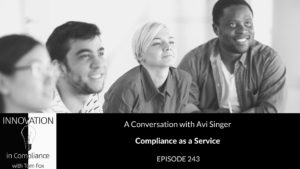A recent Inc.com article caught my eye about a series of events that returning Starbucks Chief Executive Officer (CEO) Howard Schultz has been engaging in. According to author Justin Bariso, Schultz has been engaging in a “listening tour” of Starbucks stores, literally across America. According to Schultz, he told employees “We are traveling the country, trying to, with great sensitivity, understand from you, how can we do better.” What are employees telling him? Bariso wrote, “he listens intently to one Starbucks employee after another, a pained look comes over Schultz’s face. Employees lament about the lack of training, increased turnover, and extreme pressure they’ve been forced to endure as company profits soared, but worker conditions plummeted.”
This listening tour has several goals for Schultz. The first is that even though the company has sustained record profits, morale at the company is at an all-time low. Witness the unionizing efforts that have been successful. Employees are simply fed up with not being listened to. This has eroded employee trust and management and driven down the once vibrant culture at the iconic institution. In order to rebuild that trust Starbucks, in the form of their CEO, “must first listen.” But it is more than simply listening to rebuild trust, it is rebuilding employee engagement by making them and their ideas part of the solution.
Obviously, there is still much work for Starbucks and Schultz to do. Yet these initial steps can lead to real change. Schultz is doing more than saying “We Care”; he is modeling that language in his behavior. This is action at the top. It is also communicating to other senior management they need to listen to re-engage and to build back employee trust. Now what if a Chief Compliance Officer (CCO) took that same approach for compliance? My belief is that a Schulz inspired listening tour can add multiple benefits to your compliance program.
Engagement
Start off by meeting as many compliance stakeholders as possible. You can use town hall settings, or go smaller, meeting with key employee leaders, key stakeholders and employees identified as high risk who you can meet with individually or in smaller groups. Listen to their compliance concerns and take their compliance ideas back to the home office. After returning to your office, winnow down their ideas and suggestions to form the basis of enhancements to your existing compliance program.
After you roll out your enhanced compliance program with new training, you can then give specific examples of how employee input led to the changes in the enhanced program. This engages the employees and makes them feel like they were a part of, and had a vested interest in, the company’s compliance program. This employee engagement will lead to greater stakeholder buy-in.
Education
But during the town hall meetings, and the smaller more informal group meetings, you can do more than simply listen, you can also train. This training is on overall ethics and how the employees could use compliance as a business tool. Most business’s ethical standards are not found in an existing compliance program, they are found in the general anti-discrimination guidelines and ethical business practices such anti-competitiveness and use of confidential information prohibitions. Often these general concepts can be found in a company’s overall Code of Conduct or similar statement of business ethics; workplace anti-discrimination and anti-harassment guidelines can be found in Human Resource (HR) policies and procedures. Concepts such as anti-competitiveness and use of customer and competitor’s illegally obtained confidential information may be found in anti-trust or other business practice focused guidelines.
All of this gets your employees and other stakeholders to start thinking about doing business the ethical way. It is ethical concept-based training in contrast to a rules-based approach. Moreover, this lays the groundwork for the enhancement of your compliance program and the training that will occur as the enhancement is rolled out.
Risk Assessment
Now think about this same approach from the risk assessment perspective. Listen to your employees concerns and listen to the compliance issues raised. From there you can begin to ask questions about what was done and why. This approach is not adversarial or an interrogation, but it is ferreting out the employees concerns while having the employees educate your compliance team on the actual procedures that are used. By listening, and gently questioning, you should be able to garner enough information to create a risk assessment profile which can inform and even become the basis of compliance program enhancements.
Bariso concluded his article by stating, “People lose motivation when they sense you don’t care. But the simple act of listening creates goodwill. When your people feel understood, they’ll be motivated to contribute and can help you discover insights you wouldn’t otherwise. So, when it comes to solving your company’s biggest problems, don’t ignore your most helpful resource: your people.” It all starts with listening. Let your employees and other stakeholders have the “chance to share their problems, as well as to propose solutions. Meetings like these will reveal key insights, and they will transform your people from employees to partners.”


 Contracting for ESG with David Snyder and Sarah Dadush:
Contracting for ESG with David Snyder and Sarah Dadush: Supply chains are doing enough for ESG compliance. David Snyder and Sarah Dadush aim to combat this with more effective measures.
Supply chains are doing enough for ESG compliance. David Snyder and Sarah Dadush aim to combat this with more effective measures.
